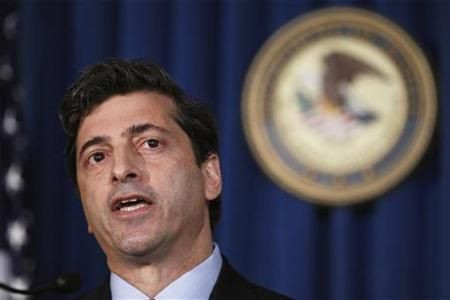SEC Alters Settlement Policy for Companies Convicted in Criminal Cases

The Securities and Exchange Commission Friday announced a change in its controversial policy of obtaining settlements without getting companies to admit guilt, ending the practice for those who copped to criminal charges stemming from the same allegations.
Robert Khuzami, the SEC's enforcement chief, announced the change in a policy that has been criticized by some of the federal judges who must sign off on deals allowing companies to settle allegations without either admitting or denying facts surrounding the case.
This new policy will apply to civil cases the SEC files alongside criminal cases from the Department of Justice over the same allegations.
It... seemed unnecessary for there to be a 'neither admit' provision in those cases where a defendant had been criminally convicted of conduct that formed the basis of a parallel civil enforcement proceeding, Khuzami said.
Under the new policy, the SEC settlement documents will recount the facts of the conviction or settlement in a criminal case. The SEC staff will also have discretion to use any relevant facts admitted in a plea deal or jury verdict in the agency's settlement documents.
The traditional SEC policy for settling cases has come under scrutiny since a federal judge in New York rejected a $285 million deal with Citigroup to settle allegations that a subsidiary misrepresented the quality of assets in a billion-dollar fund to investors. The investors lost $700 million when the fund collapsed, according to the SEC.
The SEC is appealing Judge Jed Rakoff's order rejecting the settlement.
Khuzami stressed that the change in policy was unrelated to the SEC-Citigroup case, which does not involve parallel criminal charges.
© Copyright IBTimes 2024. All rights reserved.




















